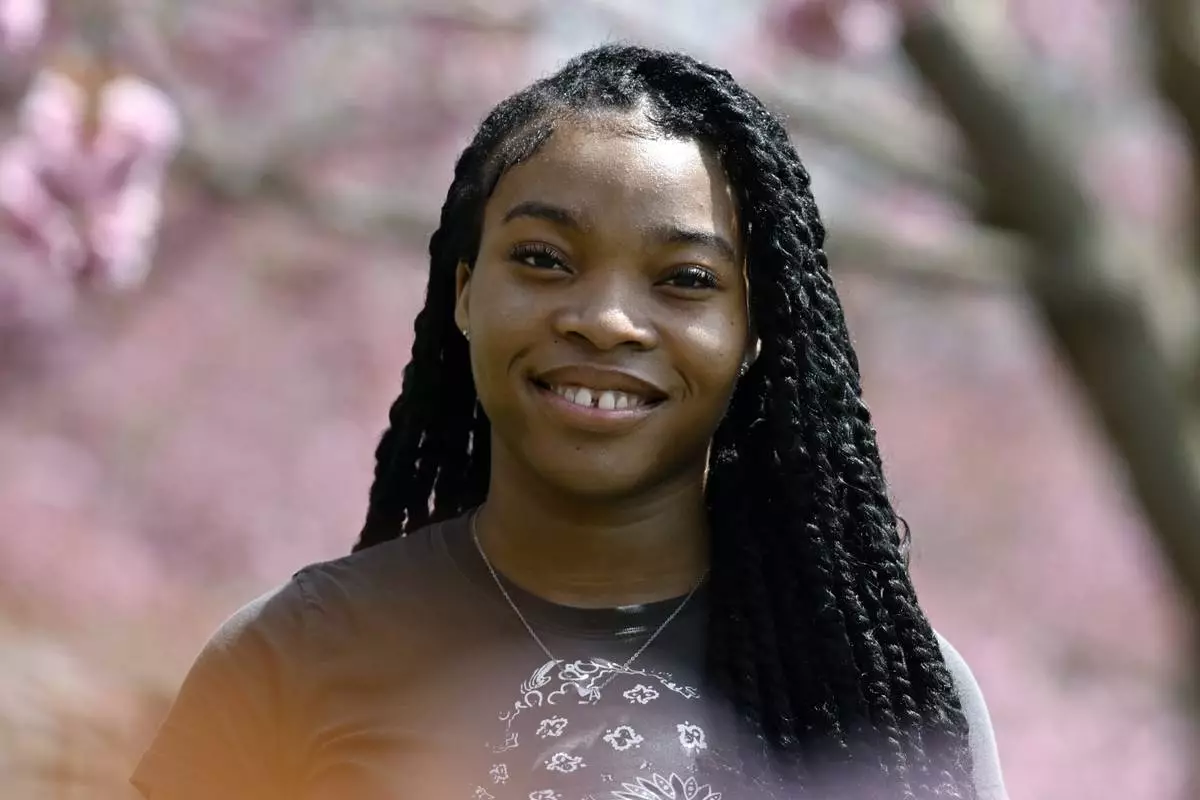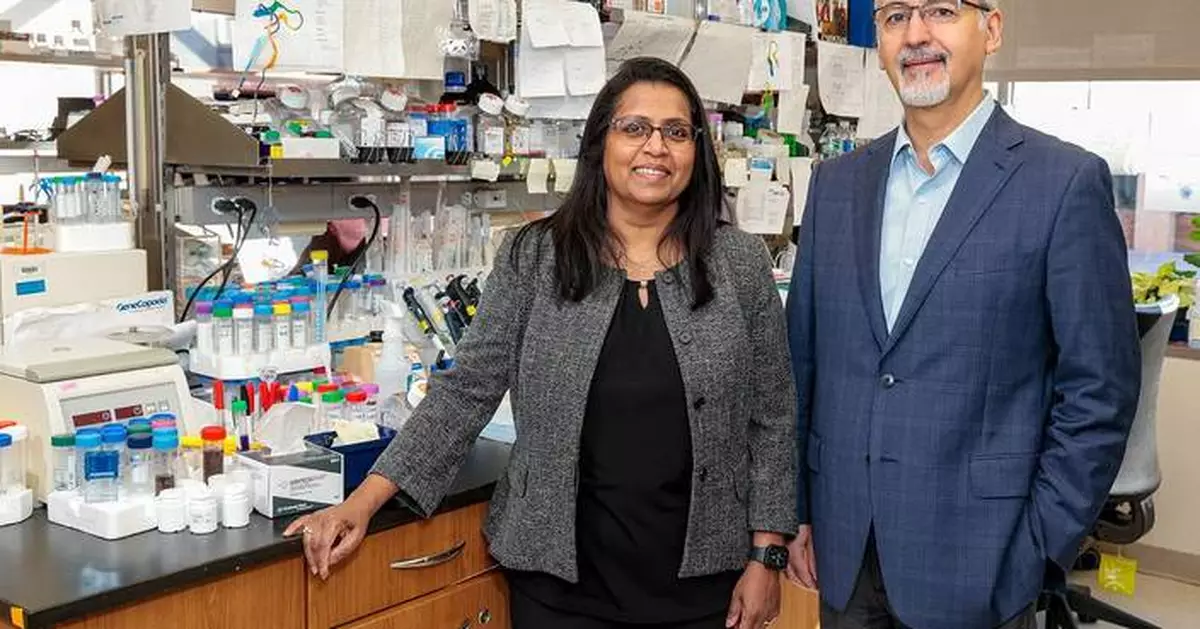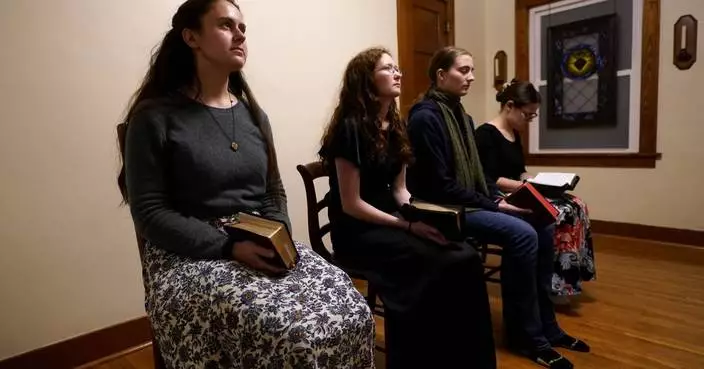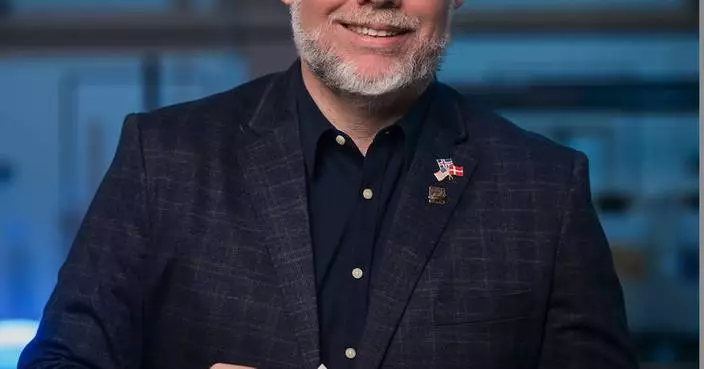MANHASSET, N.Y.--(BUSINESS WIRE)--Mar 25, 2024--
(AIMBE) has announced the election of two researchers from to the AIMBE College of Fellows Class of 2024 for their contributions to the fields of medical and biological engineering, and particularly the field of bioelectronic medicine. , and , both professors in the , were recognized in-person during the in Washington D.C..
This press release features multimedia. View the full release here:
AIMBE is a nonprofit organization representing the most accomplished individuals in the fields of medical and biological engineering with the mission to provide leadership and advocacy in medical and biological engineering for the benefit of society. AIMBE Fellows represent the top two percent of medical and biological engineers, and they include the most accomplished scientific minds in academia, industry, education, clinical practice, and government.

Drs. Sangeeta Chavan (left) and Valentin Pavlov (right) have been elected to the AIMBE College of Fellows for advancing the fields of medical and biological engineering. (Credit: Feinstein Institutes)
“It is a great honor be elected to the AIMBE Class of Fellows and be among so many esteemed colleagues who represent the brightest minds in biomedical science,” said Dr. Chavan. “This recognition underscores the importance of interdisciplinary research and motivates me to continue to advance science to cure disease.”
Dr. Chavan joined the Feinstein Institutes in 2004. Her research is rooted in progressing the field of bioelectronic medicine which combines molecular medicine, neuroscience, and biomedical engineering to regulate the immune system response. Her research explores the connections between the brain, the vagus nerve and the immune system, particularly focusing on how they collectively respond to infections or injuries. By understanding the molecular mechanisms of these neural pathways, Dr. Chavan aims to help pioneer innovative treatments for inflammatory diseases such as rheumatoid arthritis and inflammatory bowel disease. Dr. Chavan has written over 100 peer-reviewed publications and book chapters and holds numerous patents.
Last year, Dr. Chavan published results of a study that showed the effectiveness of using – something that has traditionally only been done through the use of pharmaceutical drugs. In 2021, Dr. Chavan published a groundbreaking paper in the journal (PNAS), that demonstrated effective manipulation of neurons responsible for releasing molecular proteins to modulate inflammation levels.
“I am grateful to the AIMBE, and I am proud to be a part of this new class of fellows,” said Dr. Pavlov. “This acknowledgment emphasizes the importance of medical research, collaboration, and the exchange of ideas in shaping a brighter future.”
Dr. Pavlov joined the Feinstein Institutes in 2002 and has dedicated more than two decades to understanding the brain-body communication in the regulation of inflammation, studies that helped to pioneer the field of bioelectronic medicine. His current research focus is on the role of the brain and the vagus nerve in the regulation of inflammation and metabolism, and the use of new cholinergic therapeutic approaches in sepsis and obesity-driven disorders. He has published over 100 peer-reviewed papers and book chapters and is also a co-inventor of several patents. Dr. Pavlov is the executive editor of the journal an open-access journal and part of He is also president of the (ISAN).
“Drs. Chavan and Pavlov are pioneers in the field of bioelectronic medicine whose dedicated research continues to advance our understanding of the brain-body connection,” said president and CEO of the Feinstein Institutes and Karches Family Distinguished Chair in Medical Research and Class of 2020 AIMBE fellow. "Their election to the AIMBE College of Fellows is a testament to their exceptional work. On behalf of the Feinstein Institutes and Northwell Health, we congratulate them.”
The Feinstein Institutes for Medical Research is the global scientific home of where medical researchers use modern technology to develop new device-based therapies to treat disease and injury.
Built on years of research in molecular mechanisms of disease and the link between the nervous and immune systems, our researchers discover neural targets that can be activated or inhibited with neuromodulation devices, like vagus nerve implants, to control the body’s immune response and inflammation. If inflammation is successfully controlled, diseases – such as arthritis, pulmonary hypertension, Crohn’s disease, inflammatory bowel diseases, diabetes, cancer and autoimmune diseases – can be treated more effectively.
Beyond inflammation, using novel brain-computer interfaces, Feinstein Institutes researchers developed techniques to bypass injuries of the nervous system so that people living with paralysis can regain sensation and use their limbs. By producing bioelectronic medicine knowledge, disease and injury, could one day be treated with our own nerves without costly and potentially harmful pharmaceuticals.
View source version on businesswire.com:
CONTACT: Julianne Mosher Allen
516-880-4824
jmosherallen@northwell.edu
KEYWORD: UNITED STATES NORTH AMERICA DISTRICT OF COLUMBIA NEW YORK
INDUSTRY KEYWORD: HEALTH HEALTH INSURANCE CLINICAL TRIALS RESEARCH SCIENCE PHARMACEUTICAL BIOTECHNOLOGY
SOURCE: The Feinstein Institutes for Medical Research
Copyright Business Wire 2024.
PUB: 03/25/2024 03:00 PM/DISC: 03/25/2024 03:02 PM
http://www.businesswire.com/news/home/20240325654569/en
WASHINGTON (AP) — The last thing standing between Ashnaelle Bijoux and her college dream is the FAFSA form — a financial aid application that's supposed to help students go to college, but is blocking her instead. She has tried to submit it over and over. Every time, it fails to go through.
“I feel overwhelmed and stressed out,” said Bijoux, 19. She came close to tears the last time she tried the form. “I feel like I'm being held back."
Normally a time of celebration for high school seniors, this spring has been marred by the federal government's botched rollout of the new FAFSA application. By May 1, students usually know where they're headed to college in the fall. This year, most still haven't received financial aid offers. Three months before the start of fall classes, many don't know where they're going to college, or how they're going to pay for it.
“We’re asking them to make probably one of the biggest financial decisions — and decisions that will have the biggest implications on their lives going forward — without all of the information,” said Justin Draeger, president and CEO of the National Association of Student Financial Aid Administrators.
The FAFSA, or Free Application for Federal Student Aid, went through a massive overhaul that was supposed to make it simpler and shorter. But a series of blunders by the Education Department made it harder than ever, delaying college decisions by months and raising fears that hundreds of thousands of students will forgo college entirely.
Across the United States, the number of students who have successfully submitted the FAFSA is down 29% from this time last year, and it’s even worse at schools with more low-income students, according to the National College Attainment Network.
The group's CEO, Kim Cook, warned members of Congress this month about a potentially “catastrophic” drop in college enrollments that would make the decreases of the pandemic seem mild.
For Bijoux, of Norwich, Connecticut, the FAFSA problems threaten to undermine the promise of higher education.
To her, college is a chance to seize the opportunities that weren't available to her mother, who immigrated from Haiti to the U.S. as an adult. Bijoux hopes to become a therapist and set a positive example for her three younger brothers.
If her FAFSA goes through, she should be eligible for enough financial aid to help with the $ 13,000-a-year tuition at Southern Connecticut State University. If not, she might go to a local community college, but even that would require loans if she can't complete the FAFSA.
“That’s why it hurts, because it’s like you work so hard to go somewhere and do something and make something of yourself,” Bijoux said. “I thought I would start at a four-year (college) and then work hard continuously, like I’ve been doing basically my whole life. But that’s not the case.”
The updated FAFSA form has one section filled out by students and another by their parents. But when Bijoux finishes her part, nothing shows up on her mom's online account. She keeps trying, but nothing seems to change.
Similar problems have been reported across the country, along with numerous other bugs that the Education Department has scrambled to fix. Families who call for customer service have faced long wait times or say the call center hung up on them.
It “drains all the momentum” from families working to send their children to college, especially those navigating the process for the first time, said Anne Zinn, a counselor at Norwich Free Academy, where Bijoux goes to school.
“I can only say so many times, ‘Just be patient, just be patient,’ before they throw their hands up and they’re like, ‘Why am I doing this? I’m just gonna go get a job,'" she said.
The rollout has attracted bipartisan criticism in Congress, and it's being investigated at the request of Republicans. Last week, Richard Cordray, the federal student loan chief who oversaw the FAFSA update, announced he's stepping down at the end of June.
For colleges, too, the delays pose a major threat.
Enrollment decreases like those being projected now could put many small colleges out of business, or necessitate deep cuts in staff. Some colleges are pushing for emergency relief just to stay afloat, said Angel Pérez, CEO of the National Association for College Admission Counseling.
“If they don’t get checks from the federal government to basically get them through next year, they will not survive,” Pérez said.
The FAFSA has been the linchpin of student financial aid for decades. It's used to determine eligibility for the federal Pell grant, a scholarship for low-income students, and it's required to receive federal student loans. Colleges and states also use FAFSA to distribute their own scholarships.
FAFSA had long been maligned for being tedious, difficult and intimidating to families without college experience. Congress passed legislation in 2020 meant to simplify the form. The Education Department was ordered to reduce the number of questions from more than 100 to about 40, and change the formula to expand aid to more students.
Problems started piling up as soon as the new form went online in December, already months overdue.
The first applications were incorrectly processed using an outdated calculation for inflation. Later, a federal contractor miscalculated a different formula on more than 200,000 applications. Each mistake added to delays, leaving students waiting longer to hear anything about financial aid.
Even more worrisome is a misstep that blocked students from finishing the form if they have a parent without a Social Security number. Advocates say the system locked out hundreds of thousands of students who are U.S. citizens or permanent residents but whose parents are not.
The Education Department on Tuesday said it's giving those parents a new way to enter their tax information manually. But as recently as this week, some students said they were still blocked from submitting the form.
Federal education officials say they're addressing lingering bugs but making progress. More than 8 million student applications have now been processed and sent to colleges, the agency said, and new applications are being processed within three days.
Still, the wait is far from over. It usually takes weeks for schools to prepare financial aid offers. Some colleges have extended decision deadlines to give students more time to weigh their options. But some stuck to May 1, forcing students to choose a college — and make a nonrefundable payment to hold their spot — without knowing all their scholarship options.
In West Virginia, Gov. Jim Justice on Tuesday declared a state of emergency that allows students to receive state scholarships without having their FAFSA processed by the federal government. West Virginia has the lowest number of college graduates in the nation, and the state’s high school FAFSA completion rates are currently down nearly 40%, said Justice, a Republican.
"Really and truly, a lot of kids are sitting on the sidelines ... wondering, ‘Am I going to be able to go to college?’ ” he said during a news briefing.
In Baltimore, Camryn Carter is waiting to find out if he'll get a full ride to the University of Maryland or face tens of thousands of dollars in student loans.
A top student and captain of his baseball and wrestling teams, Carter sees college as a step up in life. He thinks back to the times in the grocery store line when he had to put items back on the shelf because his mom couldn't afford the bill. A college degree would give him the stability he didn't always have, the 18-year-old said.
But when he looks at tuition, it's intimidating. Along with Maryland, he's also considering McDaniel College, a private school in Maryland. If he enrolls there, he expects to borrow almost $30,000 a year.
“I try to make the best decisions now so I can have a good future,” he said. “I'm a little nervous that things won't work out. But I'm faithful.”
__
Leah Willingham contributed reporting from Charleston, West Virginia.
__
The Associated Press’ education coverage receives financial support from multiple private foundations. AP is solely responsible for all content. Find AP’s standards for working with philanthropies, a list of supporters and funded coverage areas at AP.org.

Ashnaelle Bijoux poses on campus, Saturday, April 27, 2024, at Norwich Free Academy in Norwich, Conn. Bijoux, a senior at NFA, has been unable to complete the FAFSA form due to a glitch with the form. Without the form and the financial aid it brings, Bijoux won't be able to pursue her goal of going to Southern Connecticut State University to become a therapist. (AP Photo/Jessica Hill)

Ashnaelle Bijoux poses on campus, Saturday, April 27, 2024, at Norwich Free Academy in Norwich, Conn. Bijoux, a senior at NFA, has been unable to complete the FAFSA form due to a glitch with the form. Without the form and the financial aid it brings, Bijoux won't be able to pursue her goal of going to Southern Connecticut State University to become a therapist. (AP Photo/Jessica Hill)

Ashnaelle Bijoux poses on campus, Saturday, April 27, 2024, at Norwich Free Academy in Norwich, Conn. Bijoux, a senior at NFA, has been unable to complete the FAFSA form due to a glitch with the form. Without the form and the financial aid it brings, Bijoux won't be able to pursue her goal of going to Southern Connecticut State University to become a therapist. (AP Photo/Jessica Hill)

Ashnaelle Bijoux poses on campus, Saturday, April 27, 2024, at Norwich Free Academy in Norwich, Conn. Bijoux, a senior at NFA, has been unable to complete the FAFSA form due to a glitch with the form. Without the form and the financial aid it brings, Bijoux won't be able to pursue her goal of going to Southern Connecticut State University to become a therapist. (AP Photo/Jessica Hill)














